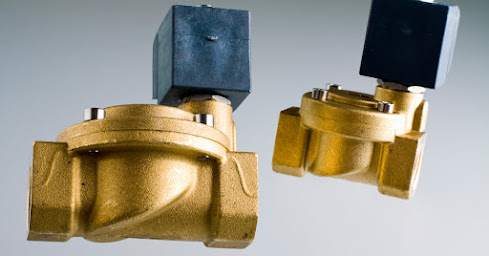How Hydraulic Solenoid Valves Enhance System Control and Efficiency
If you're a tech enthusiast or someone curious about the inner workings of machinery, then you're in for a treat. In this article, we'll dive into the world of hydraulic systems and explore the incredible impact solenoid valves bring to these setups.
Get ready to discover how these little powerhouses enhance performance, increase precision, and unlock a whole new efficiency level.
So, buckle up as we take you on an exciting journey through the wonders of hydraulic solenoid valves!
How Solenoid Valves Enhance System Control
Solenoid valves are an essential part of hydraulic systems, providing control over the flow of fluid. By regulating the flow of fluid, solenoid valves can enhance system performance and efficiency.
Solenoid valves work by using an electromagnet to open and close a valve. When the electromagnet is energised, it creates a magnetic field that opens the valve. When the electromagnet is de-energised, the magnetic field is removed and the valve closes. This simple on/off operation allows for precise control over the flow of fluid.
Hydraulic systems rely on fluid pressure to operate. By controlling the flow of fluid with a solenoid valve, you can control the pressure in the system. This can be used to maintain consistent pressure or to make adjustments as needed.
Solenoid valves can also be used to regulate the flow of fluid in multiple directions. This allows you to route fluid through different sections of a system as needed. This can be used to optimise system performance or to troubleshoot issues. For some great options for solenoid valves, you can Visit Website
Solenoid valves are an essential part of hydraulic systems, providing enhanced system control and efficiency.
Applications of Hydraulic Solenoid Valves
Hydraulic solenoid valves have a wide range of applications, from controlling the flow of fluids in hydraulic systems to regulating the pressure and direction of fluid flow. By using hydraulic solenoid valves, manufacturers can create a variety of system designs that offer enhanced control and efficiency.
Some common applications for hydraulic solenoid valves include:
Controlling fluid flow: Hydraulic solenoid valves can be used to control the flow of fluids in hydraulic systems. This includes regulating the pressure and direction of fluid flow. By controlling the flow of fluids, manufacturers can ensure that components are properly lubricated and cooled, and that system pressures are maintained within safe limits.
Regulating fluid pressure: Hydraulic solenoid valves can be used to regulate the pressure of fluid flowing through a system. This is important in ensuring that system components are not damaged by excessive pressure. By regulating fluid pressure, manufacturers can also reduce wear on system components, which can improve system reliability and longevity.
Directing fluid flow: Hydraulic solenoid valves can be used to direct fluid flow in a desired direction. This is important in ensuring that system components are properly lubricated and cooled, and that system pressures are maintained within safe limits. By directing fluid flow, manufacturers can also reduce wear on system components, which can improve system reliability and longevity.
Conclusion
In conclusion, hydraulic solenoid valves are an essential component of any system that needs reliable and precise control. Not only do they provide accurate and consistent fluid flow, but they also improve the efficiency of your system. Additionally, their versatility allows them to be used in a variety of applications ranging from medical to industrial settings. As technology advances, so too will the capabilities of these versatile valves. By staying informed on the latest advancements in hydraulic solenoid valve technology, you can ensure that your systems perform optimally for years to come.


Comments
Post a Comment